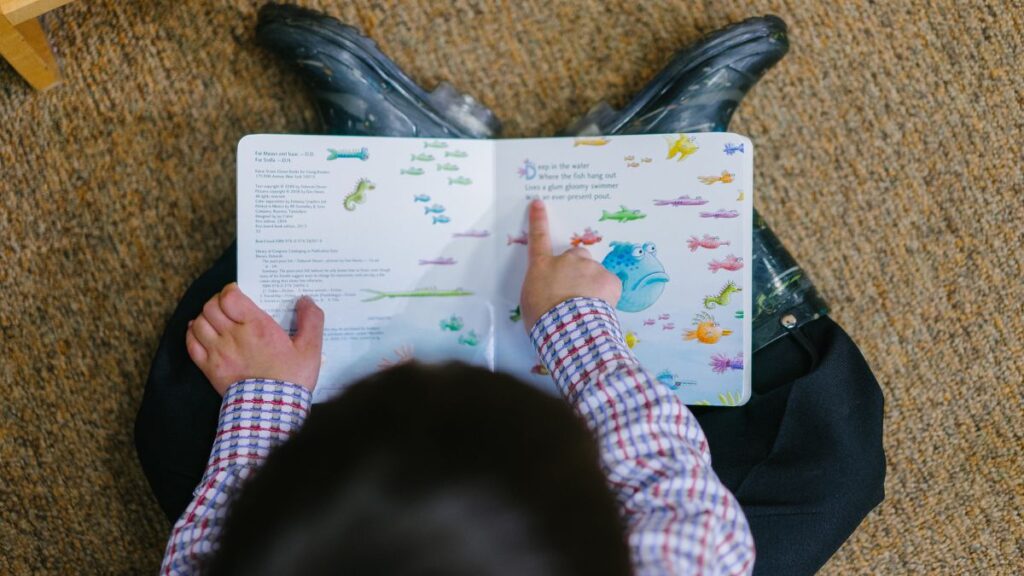Raising Writers: How to Raise Storytellers
While writing sentences as part of his homework, my six-year-old came excitedly to me to ask me the spelling of penis.
After an obvious double take, I asked him to tell me what his sentence was first.
He then brought his notebook and showed me a page-long sentence describing a lollipop.
Imagine.
Apparently, the lollipop had every human organ and feature and of course, it had to include a “but” and a “penis”.
They haven’t started to include commas in their sentences yet so when I told him he can add commas so the sentence makes sense like after two eyes, two ears, one heart, etc, he flat out refused and told me his aunty hasn’t asked them to use commas yet so of course, he can’t do anything “extra”.
I then asked him why and how can a lollipop have all of this?!
It’s a magic lollipop Ama.
Now, how can I argue with that?
I’d like to think I’m raising writers who have their own minds.
Things I did:
– I told him he does not need to ask me the spelling of words he isn’t sure about. It’s not a spelling test. It’s okay to get things wrong.
– I asked him to explain his sentence to me. If he has a logical answer it’s all good. A magical lollipop is a perfectly logical answer if you ask me. I guess he’s taken after his mother!
– I told him the spelling eventually because he would not budge.
Things I didn’t do:
– I didn’t curb his imagination. I’m never going to do that. If his aunty decides to tell him it’s too much that’s on her. I for one am going to keep the spark alive InshaaAllah
– I didn’t shame him for using the word penis. Believe me, I winced but I held firm.
– I didn’t correct the spelling of butt. How long will he not know the right spelling?
How to Encourage Children to Engage in Creative Writing

I have always been a writer before anything else. One of the worst things that you can do to a writer is to curb his imagination. It is literally to tell him you can’t do that.
Hey, you can’t write like this, this sentence is too long.
You can’t write the wrong spelling.
You can’t say these words.
If you add limitations, you are limiting what he is capable of writing. Have you never read a poem that goes against the rules of grammar? Have you never read a style of writing you do not agree with? Language and its rules keep changing and they will continue to keep changing. If we keep forcing our kids to play by the rules they will lose interest in writing.
But then how do you teach them how to organize their thoughts and write clearly?
Zaviar is only six. All I want from him at the moment is for his writing to be as free as his mind. That is the only way he will enjoy it. It’s the only way he will want to write more and more. I have told him that once he writes a big story I’ll get it published for him and he is super excited at the thought of that but not enough to get down to writing it I suppose.
I do plan to help him organize his thoughts when he writes. We can do this by introducing boundaries. What is the difference between boundaries and limitations you ask? The difference is how you put it across.
I am not going to tell him things like: “You can’t write like this!”
No, Sir! That is not happening.
Boundaries are more subtle. For instance, hey let’s try a game: This time you have to make sure that you’re sentences are short and within four lines. His one line has four to five words at max since they’re learning how to write in those four-lined notebooks.
Creative writing means giving power to the writer. If you truly want to be raising writers, and you want your children to excel at it, you’ll have to stop with the incessant instructions. This doesn’t mean you can’t help them get better at it.
There are two types of “help”. One is to tell the child what to imagine. If you want to tell the child how to imagine you’d rather teach him some other form of writing, maybe something factual. The other way is to give the child a task and this is what most teachers do. Ask them to write about something that opens their minds and makes them giddy. Every child is different. Let them decide what they find interesting. Tell them that even the sky isn’t the limit and it definitely doesn’t have to be blue.

If you feel like your child could have a better imagination, maybe his day is too packed and structured. Maybe you need to give him more unstructured playtime. Maybe he needs to read more. One thing that can stimulate the imagination of a child is the magical world of reading books.
Raising Writers: Things Children Can Write About
- Their idea of what heaven is like.
- Ask them to close their eyes and imagine they are in their favorite place. Without disclosing what the place is: What do their senses tell them right now? What can they see? What can they hear etc? Tell them that even the smallest detail in the senses matters. You have to guess the place they write about in the end.
- Ask them to write about their best friend and everything they like about him or her.
- Ask them to write about their earliest memory.
- Ask them to write about love and what it feels like.
- Ask them to write about happiness and joy and what it feels like.
- If he or she was Mommy, what rules would he or she have for the kids?
- Write about something you are thankful for.
I hope this has given you enough ideas to last you a few months if not more. You will notice that the tasks are very open-ended and can cater to the child’s imagination. You’d be surprised how differently children think from adults and how they see themselves as authors and owners of their own work.
In the end, I’d just like to say that not everyone loves to write. If your child is not interested, don’t force him. There is a BIG difference between encouragement and the use of force. Good luck raising writers!
- Can you teach a toddler how to read? - December 22, 2023
- Top 100 Self Care Ideas for Moms - November 25, 2022
- How to Teach Your Toddlers No Means No - November 22, 2022







